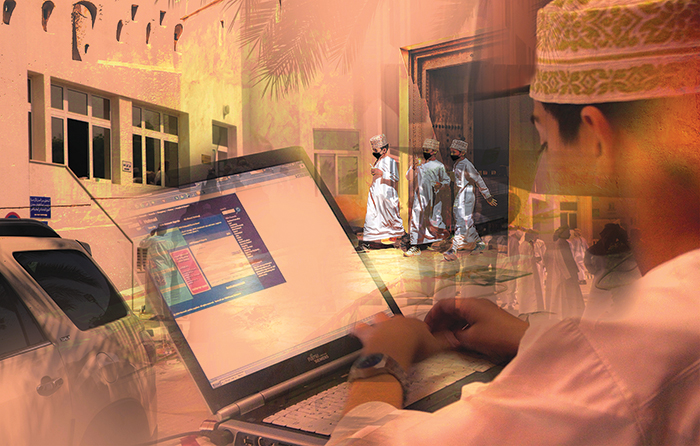
Muscat: More effective social protection for Omanis, programmes to help in early childhood development, reopening of nurseries, helping the Ministry of Health run awareness campaigns, and teaching young people life skills that they will need as adults are the most important ways in which UNICEF has been collaborating with the government of Oman.
Ted Chaiban, UNICEF’s Regional Head for the Middle East and North Africa, said he was keen on collaborating with different government entities to help them create programmes that can help provide the right skills to today’s youth, both in the form of academic curriculum, as well as through real-life exercises that will see them learn to use their abilities in a practical manner.
“In Oman, we are here to work with the Omani government and organisations to support child rights in the country, and help the country progress towards Vision 2040, by aiding its children,” he said.
“What we do regionally is work on child rights through the region, which goes all the way from Morocco to the tip of the Gulf. We look at issues such as health, nutrition, education and child protection, including in some of the conflict countries in the region.
“We focus a lot on child survival, making sure they survive till their first birthday, and looking after basic education: numeracy and reading skills,” Chaiban added.
“For example, in Oman, there’s been an excellent effort made to reduce infant deaths to near zero, and as more and more children have gone towards basic learning, we have shifted a lot of our focus towards the second decade of life – the ages between 10 and 18 – where children are turning into adolescents and from there entering adult life.”
Having recently been appointed Regional Head for MENA, Chaiban was in Muscat to meet a number of government officials, including Dr Ahmed bin Mohammed Al Saidi, the Minister of Health, Laila Ahmed Al Najjar, the Minister of Social Development, and Rashad Al Hinai, the Undersecretary of the Ministry of Culture, Sport and Youth, to discuss where cooperation was needed.
Speaking exclusively to the Times of Oman, Chaiban highlighted five key areas in which UNICEF was contributing to social and educational improvement in the country, to help in both short and long-term development.
“Firstly, we have worked on improving the system of social protection,” he explained.
“Oman is working on improving its economic reforms in terms of the fiscal space they have, but in the process of doing so, you still need to be able to protect the most vulnerable in society, so how do you do that? That is an area on which we have worked.”
“Secondly, we worked on early childhood development,” he added. “Studies have shown that if you focus on learning and socialising in the earliest years of your life, from the ages of a few months, all the way to six or seven years of age, if you get that early start, through pre-learning and you’re in a nursery or kindergarten, that is when your skills get built, and you have significant experience and significant capacities for the rest of your life. We worked to support the ideas and standards of that system.”
Adding to this, Chaiban said: “We also helped reopen nurseries, so that parents could work during COVID. For the first few months during the pandemic, no kindergartens, no nurseries were open, because people were afraid of COVID. We worked with the Ministry of Social Development to establish the standards to reopen early childhood development centres.
Throughout the pandemic, UNICEF has also been working to help the Ministry of Health run awareness campaigns on the coronavirus, the importance of maintaining hygienic practices, and in the build-up and roll-out of the country’s vaccination drive, the benefits of getting oneself inoculated against the disease.
“The fourth area we’ve worked on is supporting the Ministry of Health on all issues of communication, issues around social media, to support an understanding of COVID, and of vaccination, both regular vaccination, and receiving the COVID vaccine,” Chaiban said.
“The last is the area around young people: helping them with life skills, and the quality and resilience of education that will stay with them through adulthood,” he went on to add. “As adolescents, it is important we provide the skills for them to be able to be productive citizens, productive adults, from a world of learning to a world of employment and employability.
“You do need basic skills: youth maths, your reading, your English, but you also need skills that you can take with you no matter where you go, from how to communicate, how to collaborate, how to work in a team, to how to be entrepreneurial: what can I control in terms of my own destiny and my own future, in terms of opportunity, rather than slotting into someone else’s,” he said.
“How to cooperate with other people, and stay focused on goals so that things can happen are among the things we plan to weave into curricula, from the age of nine or ten, a lot of the habits we have for the rest of our lives are formed,” he explained.
“Wherever it may be, whether it is a place like Oman, or one such as Morocco or Syria, learning those skills are key. The integration of those life skills into education and learning to make them relevant for the rest of your life is very important.”